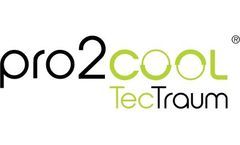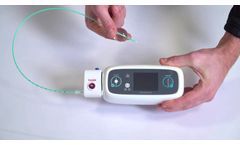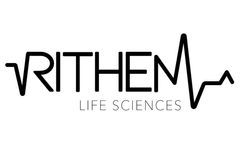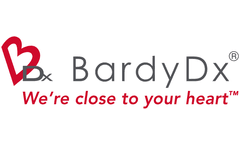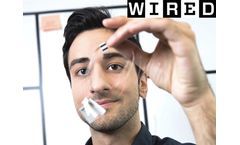Refine by
Cardiac Arrest Articles & Analysis
23 news found
Patients who experience anesthesia often are in cold environments (operating rooms), under the influence of vasodilators which pull heat from the core, and wounds cause evaporation. Cardiac arrest: Anesthesia has been proven to be a contributing factor, or even a leading cause, in cardiac arrest, a small percentage of the ...
Recovery time for ‘going under’ is longer than local anesthesia and risks not only a wider range of side effects, but side effects of a very serious nature, such as cardiac arrest. Types of Local Anesthetic There are a lot of drugs that block signals to the brain sent by nerve pathways, but lidocaine is the most well-known. ...
Introduction: Sudden cardiac arrest (SCA), which causes more than half of all cardiovascular related deaths, can be regarded as a common massive global public health problem. Analyzing out-of-hospital cardiac arrest (OHCA) cases, one of the key components is automatic external defibrillators (AEDs). ...
Introduction: This study sought to identify the availability of automated external defibrillators (AEDs) in schools in the region served by West Midlands Ambulance Service University NHS Trust (WMAS), United Kingdom, and the number of out-of-hospital cardiac arrests (OHCA) that occurred at or near to schools. A secondary aim was to explore the cost effectiveness ...
” Hypothermic therapy (“cold therapy”) has been shown to have clinical efficacy in a variety of cardiovascular injuries, including cardiac arrest and myocardial infarction (heart attack). The physiologic neuroprotective benefit from cooling the injured region is believed to occur at the cellular level. ...
Bristol-Myers Squibb K.K. today announced that Japan’s Ministry of Health, Labour and Welfare has approved Abecma (idecabtagene vicleucel), a B-cell maturation antigen (BCMA)-directed chimeric antigen receptor (CAR) T cell immunotherapy, for the treatment of adult patients with relapsed or refractory (R/R) multiple myeloma, who have received at least three prior therapies, including an ...
Under the PCT Patent, Neuropathix novel therapeutic compounds have the potential to target diseases that include neuropathic pain, traumatic head injury, stroke, Chronic Traumatic Encephalopathy (CTE), Post Cardiac Arrest Hypoxic Ischemic Encephalopathy, Epileptic Encephalopathy, and neurodegenerative diseases such as Parkinson’s disease, Alzheimer’s, ...
The Vent2Cool medical device shields the brain and heart of resuscitated cardiac arrest patients from the reperfusion-induced cytokine storm. Vent2Cool improves survival and morbidity outcomes of Post Cardiac Arrest Syndrome by inducing ultra-rapid therapeutic hypothermia, reaching 33°C within minutes versus hours with ...
Hypothermic therapy (“cold therapy”) has been shown to have clinical efficacy in a variety of cardiovascular injuries, including cardiac arrest and myocardial infarction (heart attack). The physiologic benefit from cooling the injured region is believed to occur at the cellular level. ...
South Korean artificial intelligence (AI) developer, VUNO Inc. announced today that it has received regulatory approval from the Ministry of Food and Drug Safety (MFDS) for its VUNO Med®–DeepCARS™, an AI medical device for cardiac arrest prediction through vital signs. VUNO Med®–DeepCARS™ is a breakthrough AI-driven medical device ...
Today, only 1 out of 10 survive a cardiac arrest with the current treatment and it is estimated to be the single largest cause of death worldwide.2 Neurescue aims for its device to help increase the survival rate for these patients. ...
“I am thrilled to join the board of directors at Neurescue to help advance its next-generation balloon catheter technology in development, which has the potential to save the lives of the millions of people worldwide suffering from cardiac arrest each year,” said Mette-Marie Harild. “There has been little innovation in the treatment approach to ...
After a personal incident involving the tragic and sudden loss of his friend’s young son, he was inspired to form Rithem Life Sciences and develop affordable, life-saving, portable products designed to assist anyone in responding to a sudden cardiac arrest event. Carl Schmigelski, M.D., is a board-certified anesthesiologist and an active member of the ...
KEY POINTS Cardiac arrest is one of the leading causes of death in the U.S. and globally. ...
Arrhythmias affect millions of Americans every year, and the most dangerous arrhythmia, ventricular tachycardia, can cause sudden cardiac death, affecting approximately a half million people annually in the United States[1]. ...
The company is currently conducting several additional multi-site clinical trials in order to receive regulatory approvals including from Israel’s Ministry of Health including for measuring body temperature, respiratory rate, blood pressure and oxygen saturation (SpO2) in the blood as well as detecting additional arrythmias including cardiac arrest at the ...
CardiacSense, an Israeli digital health technology company, that develops first-of-a-kind medical wristwatch for remote monitoring and detection of general fever diseases, cardiac arrhythmias and chronic illnesses, announces that it will launch a new business model towards the beginning of its sales, expected in the 4th quarter of 2020, as part of which it will also provide users ...
The wearables provide continuous monitoring of the cardiac systems and blood pressure. Supported by traditional electrocardiogram (ECG) verification, what makes the CardiacSense wearable different is that it uses PPG technology (photoplethysmography) that is free of any movement artifacts (which are the Achilles Heel of traditional PPG) to carry out long-term, continuous ...
the standard of care used to treat stroke, brain injury and cardiac arrest to increase neurological outcome by up to 40%.? ...
In April 2013, final-year Danish medical student Habib Frost was called out to an emergency: a four-month old girl had just suffered cardiac arrest. Frost’s team tried defibrillation, but to no avail. Immediately after, the team was called out again: another case of cardiac arrest, this time a woman in her 30s. Once again, ...



